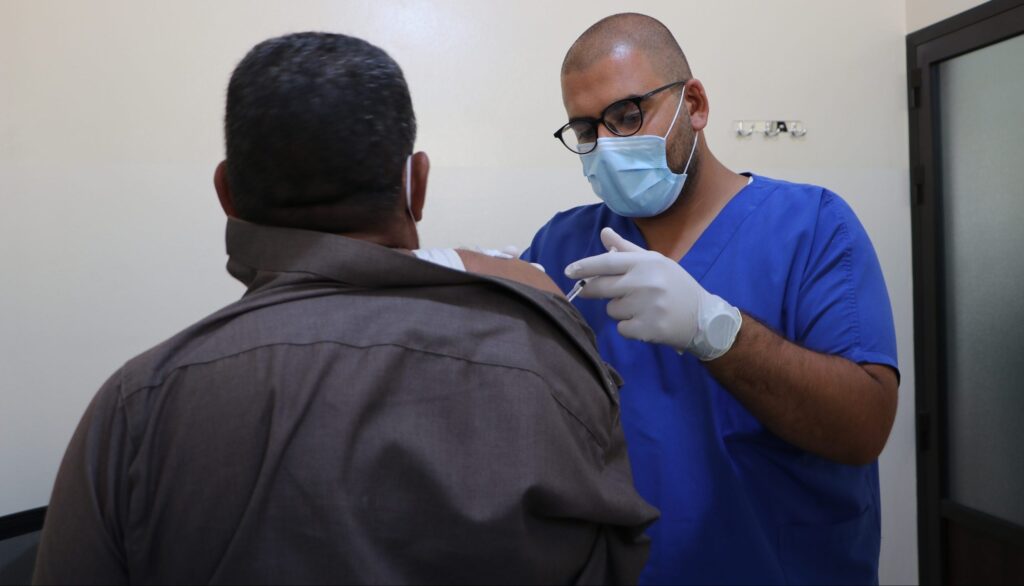Updates & Press
Featured | November 17, 2021
Global Vaccine Equity and the Ethics of Booster Sh
Author | MedGlobalComms

By Valerie Nguyen, MedGlobal Policy Intern
When the first booster shots were approved in the United States in September 2021, over half of the U.S. population was fully vaccinated against COVID-19. Meanwhile, less than 1% of people in low-income countries and 10% of people in lower-middle-income countries were fully vaccinated. According to the World Health Organization, booster doses are to be administered to a vaccinated population when the rate of immunity falls below a rate deemed sufficient over time. Already, 36 countries have begun administering COVID-19 vaccine booster doses. The U.S. tops the list with 1.24 million booster doses administered, followed by Turkey, Chile, and Israel.
Because of the increase in booster doses among high-income countries, low- and lower-middle-income countries have less access to the global vaccine supply. The World Health Organization estimates that if 11 wealthy nations were to administer boosters to everyone over the age of 50 years old, they would use up to 440 million doses of the global vaccine supply. Many, including the WHO, maintain that those booster shots would be more impactful if used to vaccinate communities in low- and lower-middle-income countries where more than 85% of people, or 3.5 billion, haven’t received a single dose. In contrast, 65% of people in high-income countries have received at least one dose.
Vaccine promises made by high-income countries from goals set by the United Nations General Assembly COVID-19 Summit and COVAX initiative are also lagging in their predicted timelines. The Summit, which was held in September 2021, aimed to reach a global vaccination rate of 40% by the end of 2021 and 70% by mid-2022. Currently, the pace of vaccination in low-income countries needs to increase 19 times its current rate to inoculate 40% of those nations’ populations by the end of the year. The COVAX program, which aims to distribute 2 billion doses for countries in need by the end of 2021, has only delivered 400 million doses across 145 countries. The program faced delays in funding, so by the time funding was available, most of the global vaccine production was already reserved by other countries that could afford them. In addition, the majority of vaccines distributed by COVAX are purchased rather than donated, so a delay in funding has directly caused a delay in vaccine delivery.
So far, all booster doses have been administered in countries that can afford to purchase vaccines, leaving little room for low-income and lower-middle-income countries to reserve vaccines ahead of time. This has led to increased criticism of high-income countries hoarding the vaccine supply. Physicians for Human Rights COVID-19 Senior Policy Expert, Max Hadler, MPH, MA, states, “The United States and other high-income countries have hoarded an extraordinary proportion of the global vaccine…providing boosters for healthy residents in high-income countries without increasing global supply and distribution will deepen already unacceptable inequities in global vaccine access.” As a result, this leaves populations vulnerable to COVID-19 without equitable access to the vaccine, prolongs high COVID death rates in low- and lower-middle-income countries, and exacerbates existing health disparities worldwide.


